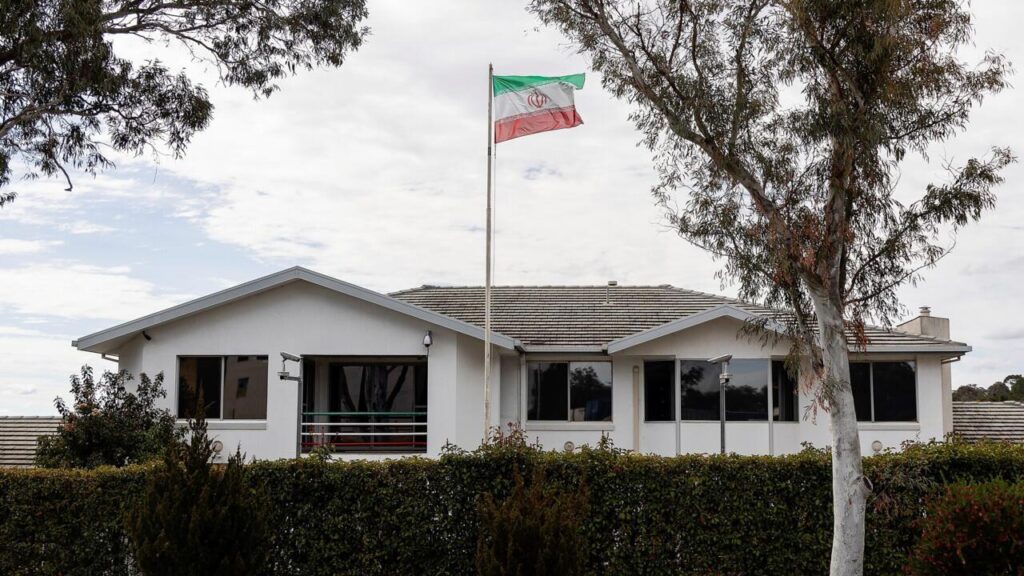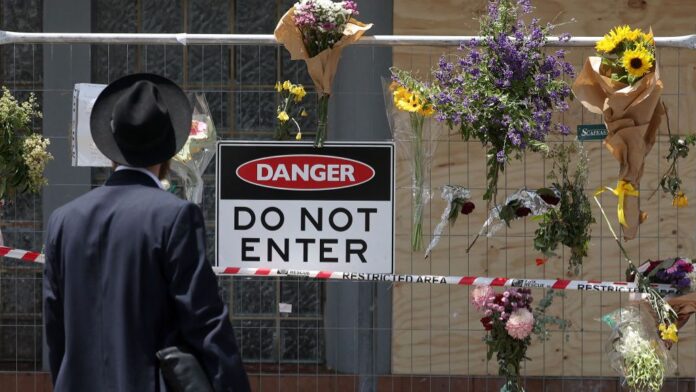Australia expels Iran ambassador in a major diplomatic fallout after intelligence agencies linked Tehran to antisemitic attacks on Jewish sites in Sydney and Melbourne. Prime Minister Anthony Albanese confirmed on Tuesday that Ambassador Ahmad Sadeghi has been given seven days to leave the country, alongside three other Iranian officials, following what he called “extraordinary and dangerous acts of aggression.”
Australia Expels Iran Ambassador After Attacks
The decision comes after a months-long investigation revealed Iranian involvement in two violent incidents. The first was an arson attack on Lewis Continental Kitchen, a café in Sydney, in October 2023. The second targeted Adass Israel Synagogue in Melbourne that December, forcing worshippers to flee as flames consumed parts of the building.
Albanese said these attacks were not random but deliberate attempts to “undermine social cohesion and sow discord in our community.” Australia has since withdrawn its diplomats from Tehran, with the Prime Minister stressing the gravity of Iran’s actions. Australia expels Iran ambassador from their side.

Intelligence Links Iran’s IRGC to Attacks
The Australian Security Intelligence Organisation (ASIO) played a central role in uncovering the truth. According to ASIO chief Mike Burgess, investigators linked the attacks to the Islamic Revolutionary Guard Corps (IRGC), an elite arm of Iran’s military.
“They’re just using cut-outs, including criminals and members of organised crime gangs, to do their bidding,” Burgess explained. He added that Iran used “a complex web of proxies” to disguise its role, but evidence firmly established the chain of command back to Tehran.
This revelation places the IRGC in direct connection with coordinated antisemitic crimes on Australian soil, something Albanese described as both “deeply disturbing” and “unacceptable.”
Rise of Antisemitic and Islamophobic Incidents
Since the October 7, 2023 Hamas attack on Israel and the subsequent war in Gaza, Australia has seen a surge in hate crimes. Synagogues, Jewish schools, homes, and vehicles have been targeted.
While Iranian-backed antisemitic attacks have dominated headlines, civil society groups also recorded a rise in Islamophobic incidents, highlighting the wider impact of global conflicts on Australian communities.
The government has urged Australians to resist division and avoid being manipulated by external actors aiming to fracture society. That’s why, Australia expels Iran ambassador.
Expulsion Marks Historic Moment
Foreign Minister Penny Wong confirmed this is the first time since World War II that Australia has expelled an ambassador.
Although Ambassador Sadeghi himself was not directly tied to the attacks, the Albanese government argued that Iran’s leadership must be held accountable. Wong announced that Australia’s embassy in Tehran has been suspended for safety reasons and advised all Australian citizens in Iran to leave immediately.

She added that while limited diplomatic channels will remain open, relations with Iran are at their lowest point in decades.
Israel Welcomes Australia’s Action
The Israeli embassy in Canberra praised Australia’s strong response, stating:
“Iran’s regime is not only a threat to Jews or Israel, it endangers the entire free world, including Australia.”
The statement highlighted long-standing concerns about Iran’s regional and global influence, particularly through its alliances with armed groups like Hamas and Hezbollah.
IRGC to Be Designated as Terrorist Group
In addition to expelling Iranian diplomats, Australia has announced plans to formally designate the IRGC as a terrorist organisation. This move will bring Australian policy in line with the United States and several European nations that have already blacklisted the group.
This designation will allow Australian authorities to crack down harder on networks and financial links associated with the IRGC, strengthening national security.
Local Communities React with Shock
The attacks have left both Jewish and non-Jewish Australians shaken. Community leaders described the synagogue fire as particularly painful, given that it was built by Holocaust survivors in the 1960s.
Local residents said they never imagined foreign powers would orchestrate such violence within their own neighborhoods. One Melbourne community member described it as “a terrifying reminder that global conflicts can reach into the heart of Australia.”
Conclusion: A Defining Diplomatic Break
The expulsion of Iran’s ambassador underscores Australia’s zero-tolerance stance toward foreign-directed violence. By linking the incidents directly to Tehran’s IRGC, authorities have made clear that such interference will not be tolerated.
For Australia, this is not just a matter of foreign policy but also about protecting multicultural harmony and preventing external powers from fueling division.
As tensions escalate, the world will be watching whether Iran responds, and how this diplomatic rupture may reshape alliances in the Indo-Pacific.

